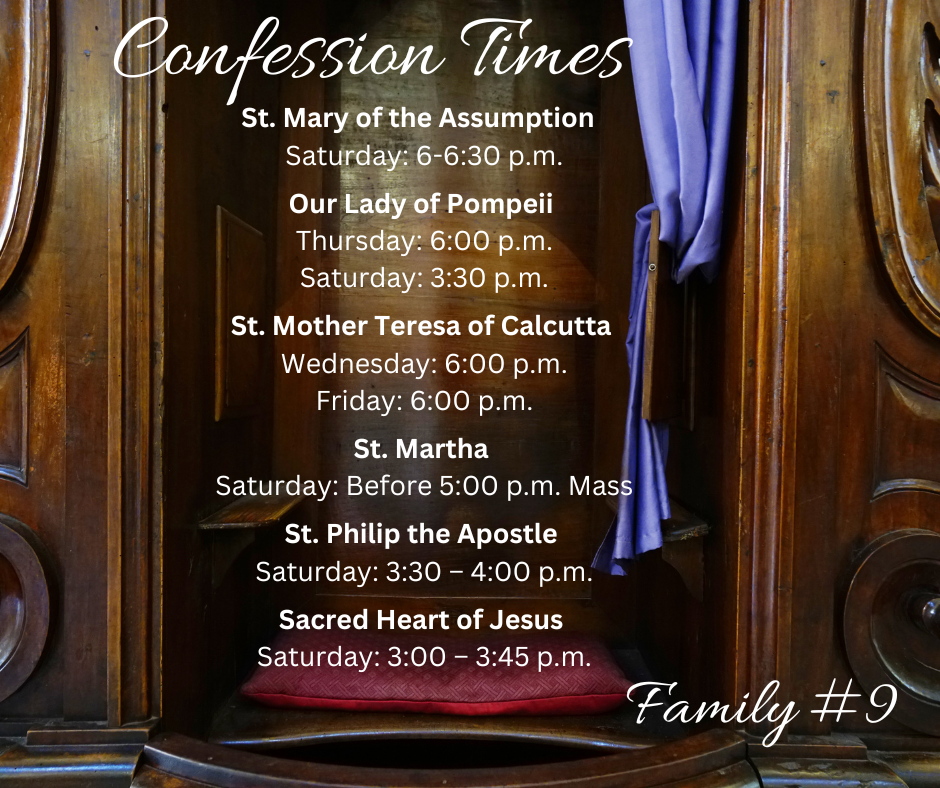Author: Kaitlin Scirri
Have you ever wanted to confess? No, I’m not talking about confession, when we tell a priest our sins. Let’s be honest, we usually only do that kind of confessing because we have to, rarely because we actually want to. I’m talking about that feeling when you know you’ve hurt someone, said something cruel, or done something that you wish you could take back. Of course you have wanted to do that kind of confessing, because we don’t like it when our relationships with friends, family, or co-workers are strained or tense. If we’ve hurt someone we care about, admire, or enjoy working with, we want to make things right. So we confess, admit what we did, and apologize.
Now, let’s talk about confession – yes that confession. Why is it that when we hurt our friends or family we are eager to make things right, yet, when we hurt Jesus with our sins, we come up with excuse after excuse to avoid the confessional? Maybe we’re ashamed of what we’ve done. Maybe we’re embarrassed to go in there and confess the same sins we confessed last time. Maybe we’re nervous about what to do and what to say because we stay away from confession for long periods of time. Or maybe the devil is whispering in our ears that what we’ve done wasn’t that bad or that “everyone does it” and confession really isn’t necessary. Whatever your reason for avoiding the confessional, it’s important to understand some truths about this beautiful sacrament of healing.
First, confession isn’t about embarrassing us or making us feel ashamed. On the contrary, confession helps us grow in our understanding of how much we are loved as sons and daughters of God. In confession, we get to personally encounter the loving, healing mercy and grace of Jesus. We profess as Catholic Christians that Jesus died to save us from our sins. In the confessional, we get to experience that mercy and grace firsthand when we confess our sins and receive loving words of absolution, not condemnation.
Second, confession is not a dance recital – it’s okay if you don’t remember all the steps! The priest is there to help you and guide you. Let him know how long it’s been since your last confession, and just be honest if you’re unsure of what to say or do next. As a convert, my first few times in confession started with me saying to the priest, “I’m new at this and I don’t know what I’m doing.” This usually elicited a “Praise the Lord!” and a chuckle before they lovingly guided me through the steps. Priests aren’t there to intimidate or embarrass us, and it’s okay if you don’t know exactly what to say or do. They are there to help you. Let them.
Third, after confession comes penance, but again, we shouldn’t think of this as something we have to do. Yes, we are required to do our penance, but we shouldn’t look at it as a punishment. Doing penance is another opportunity to grow closer to our loving Lord. Let’s think back to our relationships with family and friends. Once we’ve confessed the wrong we’ve done to them, what comes next? We take action. We might say something like, “How can I make it up to you?” It’s not that we believe we can or need to earn their forgiveness or that they want to punish us for what we’ve done. This desire to “make it up to them” comes from a place of love, of wanting to express how much we care for that person and want to heal something that’s been broken. We want to offer an external sign of an internal change in our hearts. This is what penance is. It’s about expressing how much we love the Lord and want to heal our relationship with Him, which was fractured when we chose to sin. It’s no coincidence that confession is called the sacrament of reconciliation and a sacrament of healing.
The temptation to skip confession can be strong, especially when we have the enemy working to convince us that we don’t need it. But the truth is, we do need confession and penance. Not because it’s a rule we have to follow. Not because we want to check off a box. But because sometimes we hurt the Lord through our careless words and actions. Thankfully, we don’t have to stay in a state of brokenness. Jesus invites us into the confessional to be healed and restored. Don’t focus on how long you’ve been away. Focus on the rejoicing in heaven that takes place once you’ve come back!


